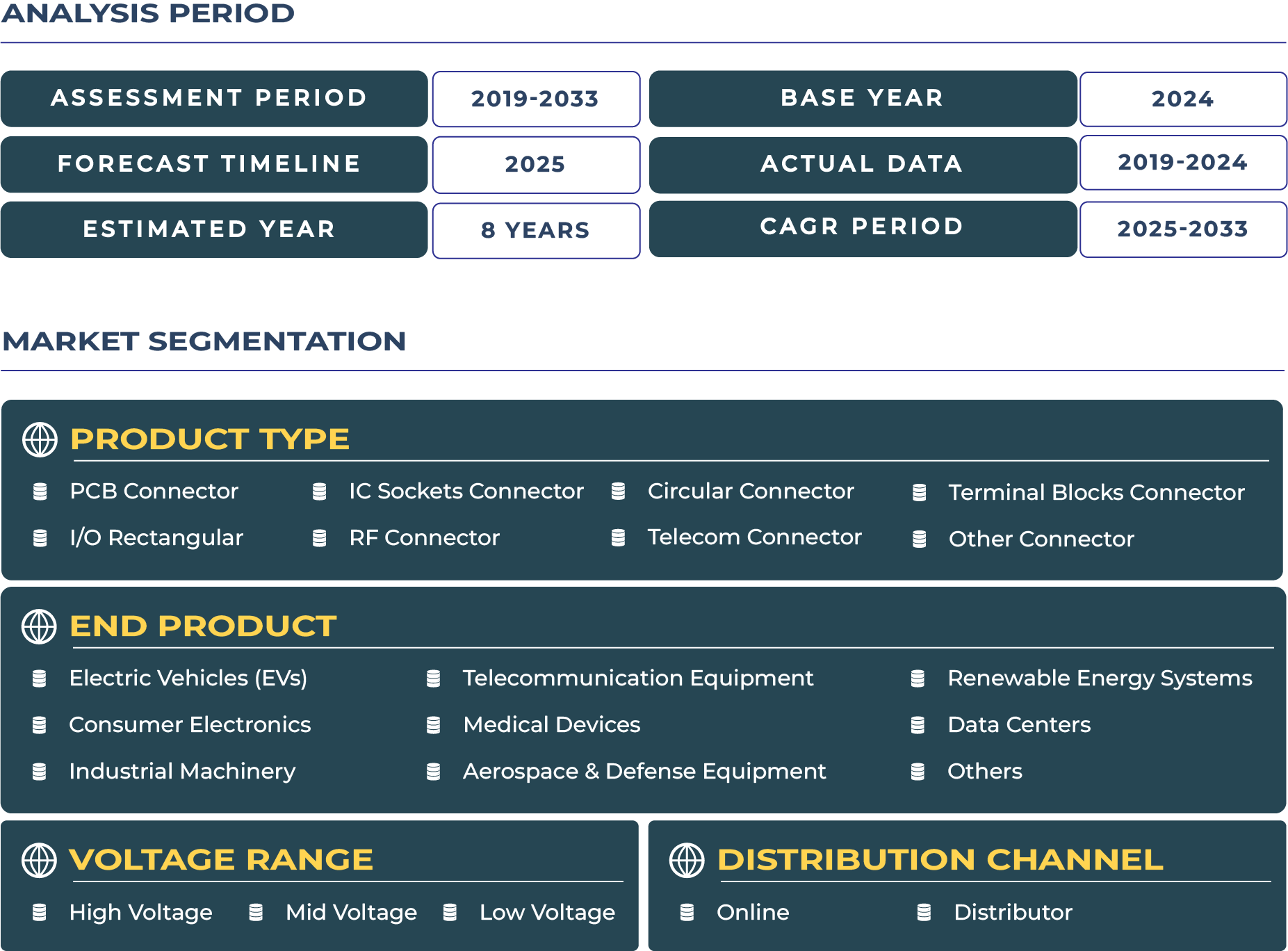Colombia Connector Market Outlook
Colombia Urban Tech Ecosystem Spurs Compact Connector Innovation
Colombia’s rapid urban evolution—driven by burgeoning smart cities, rising disposable incomes, and expanding medical electronics—is transforming the connector industry. With metropolitan centers like Bogotá and Medellín undergoing robust infrastructure upgrades, demand for ultra-thin, magnetically secured connectors has intensified. These micro-connectors—particularly low-profile board-to-board and RF types—play a pivotal role in streamlining wearable healthcare devices, IoT-enabled street lighting, and next-generation telecom gear. In response, suppliers are delivering compact magnetic connectors that ensure secure detachability, reduce electromagnetic interference, and align with regulatory standards. The connector market in Colombia is expected to reach USD 215 million by 2033.
Compact Magnetic Solutions Fuel Colombia’s Smart Lighting and Wearables Surge
The rise of LED-based public lighting and urban-grade monitoring systems in Medellín and Cali underscores the need for compact, magnetically secured I/O rectangular and RF connectors. With connectivity modules embedded in lampposts and environmental sensors increasingly exposed to daily wear—movement, moisture, vandalism—the demand for connectors that allow safe, tool-free removal is escalating. These developments signal a broader shift in Colombia’s connector landscape, blending miniaturization with user-centric durability, responding adeptly to increasing urban and healthcare integration.
Integration of high-paced lighting and instrumentation has propelled connector demand.
Urban centers have implemented automated LED infrastructure with embedded sensors, increasing installation of PCB connector systems by 30% year-on-year. Likewise, the expansion of lab-grade test and measurement facilities—spurred by Colombia’s emerging biotech and electronics industries—has amplified demand for high-reliability RF and terminal block connectors.
However, signal integrity and labor limitations are a challenge. Miniaturized connector systems—particularly low-profile board-to-board and RF types—are vulnerable to EMI and thermal stress in Colombia’s high-altitude cities. In late 2024, a Bogotá electronics manufacturer cited an 18% failure rate during stress testing of compact RF connectors used in telecom modules, raising concerns over installation quality. Furthermore, the shortage of precision assembly labor at SMT scale limits scalability; manufacturers have reported production line inefficiencies due to substandard soldering and bowl handling errors, leading to lifecycle degradation. These headwinds emphasize the need for comprehensive workforce development and validation protocols within the Colombian connector ecosystem.
Emerging Trends and Market Opportunities in Magnetic Micro-Connectivity
Colombia’s connector sector is embracing magnetic and low-profile innovations at scale. There is a noticeable increase in demand for small-form-factor board-to-board connectors optimized for wearable and handheld devices. Equally notable is the rising adoption of magnetic connectors in medical-grade equipment. Hospitals in Barranquilla are deploying diagnostic scanners with magnetic connector interfaces that detach safely if tugged or displaced—enhancing patient safety.
From an opportunity standpoint, the market is ripe for ultra-thin connectors for consumer electronics and safe-detach connectors in the healthcare sector. Colombian OEMs are eager to partner with international connector specialists to source compact PCB header connectors with magnetic couplings rated for 5 kg pull force.







